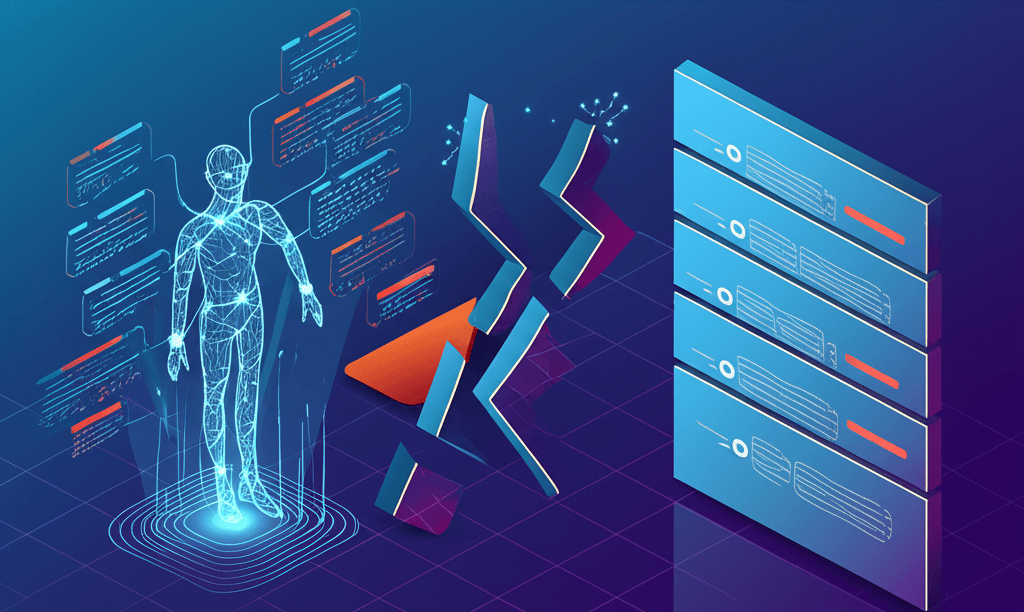Two-Day AI Build Prompts DocuSign Lawsuit Against Free Rival
A free e-signature tool built with AI challenges DocuSign, igniting a debate on IP, competition, and 'vibe coding'.
June 23, 2025

A burgeoning controversy at the intersection of artificial intelligence, software development, and intellectual property law has captured the attention of the tech community. DocuSign, an established leader in the electronic signature market, has issued a legal notice to Michael Luo, a developer who created a free e-signature tool. The incident has ignited a debate about competition, the burgeoning power of AI in coding, and the challenges faced by individual creators in a landscape dominated by large corporations. At the heart of the matter is Luo's project, a website he named Inkless, which offers users the ability to sign an unlimited number of documents for free, a direct challenge to the tiered, often costly, subscription models of established players like DocuSign. The conflict highlights a growing trend of "vibe coding," where developers rapidly build functional applications using AI-powered tools, raising questions about the future of software development and the defensibility of existing business models.
The creation of Inkless was a direct response to public sentiment regarding the cost of e-signature services. Inspired by a social media post lamenting the expense of DocuSign, Luo, a software engineer, set out to see how quickly he could build a viable, free alternative using modern AI tools.[1] In a remarkably short period of two days, he developed a functional product.[2] Luo's development process relied on a suite of AI-powered platforms, including ChatGPT for generating code, Cursor as an AI-native code editor, and Lovable, a platform that helps create web applications from natural language prompts.[2][3][4][5] This approach allowed him to rapidly prototype and then build out features such as user authentication and email notifications, transforming a basic concept into a production-ready application capable of serving thousands of users.[1] This method of development, sometimes referred to as 'vibe coding,' emphasizes speed and iteration, leveraging AI to handle much of the boilerplate and complex code generation, enabling a single developer to accomplish what might have previously required a team.[2][6]
DocuSign's legal action came in the form of a cease-and-desist letter.[2] The company cited concerns over the protection of its intellectual property and accused Luo of disseminating "false and misleading statements" about its product.[2] While the specifics of the intellectual property claim were not fully detailed in publicly available information, it likely pertains to trademark and brand identity.[7] The "misleading statements" likely refer to Luo's public discussion of DocuSign's pricing as the inspiration for his free alternative.[2] DocuSign's free plan allows users to sign unlimited documents, but only permits the sending of three documents for signature collection before requiring a paid subscription.[2] Luo has publicly refuted the claims, stating, "I never stole anything from DocuSign or made misleading statements," and characterizing the legal notice as an attempt by the incumbent to stifle competition from his free tool.[2] He has vowed to continue developing and improving his platform in the face of the legal challenge.[2]
This incident carries significant implications for the broader AI and software development industries. The ability of a single developer to rapidly create a competitive product using AI tools signals a potential disruption to the established Software-as-a-Service (SaaS) market.[1] It suggests that the "moats" or competitive advantages of incumbent companies may be shrinking as the barrier to creating functional alternatives lowers dramatically. The case also raises legal and ethical questions. While developers are free to create competing products, the line between fair competition and intellectual property infringement can be complex. For developers using AI, there is now the added concern of facing legal challenges from established companies, a daunting prospect for individual creators without significant legal resources. The community's reaction has been largely supportive of Luo, with many seeing DocuSign's actions as an aggressive tactic to suppress a nascent competitor.[8]
In conclusion, the confrontation between DocuSign and Michael Luo serves as a pivotal case study in the evolving landscape of technology and business. It demonstrates the disruptive power of AI-assisted software development, which enables individuals to challenge established market leaders with unprecedented speed. The legal threats leveled against Luo underscore the anxieties of incumbent companies facing a new wave of nimble competitors. As AI tools become more sophisticated and accessible, the tension between innovation and intellectual property protection is likely to intensify. The outcome of this specific dispute could set a precedent for how similar conflicts are handled in the future, influencing the creative freedom of developers and shaping the competitive dynamics of the software industry for years to come.